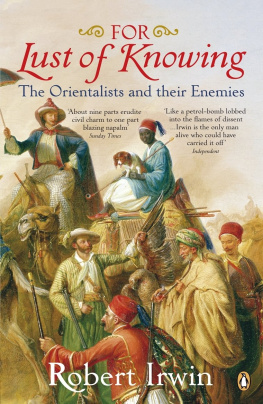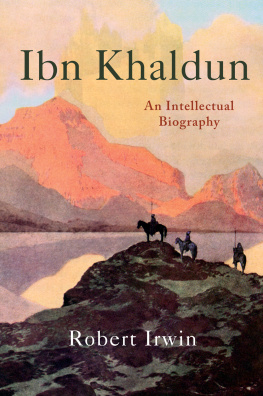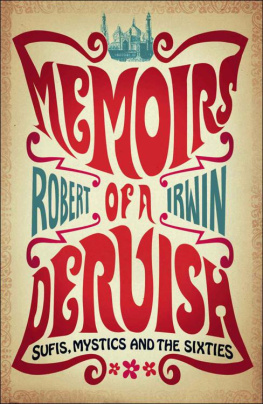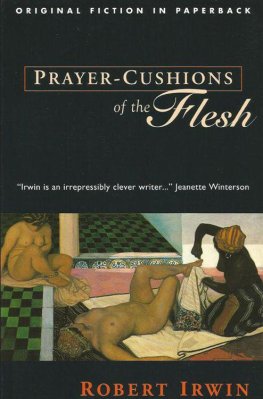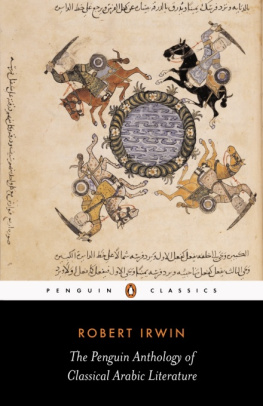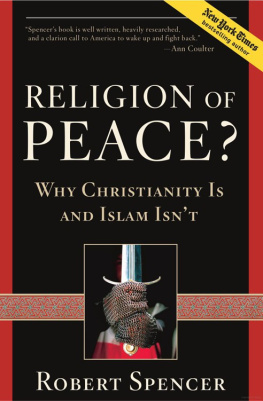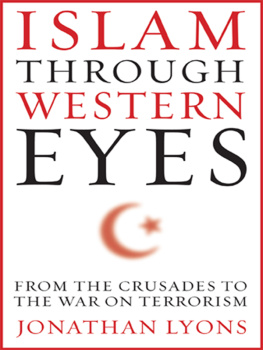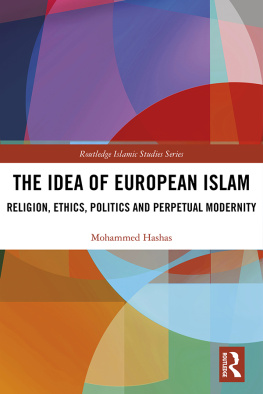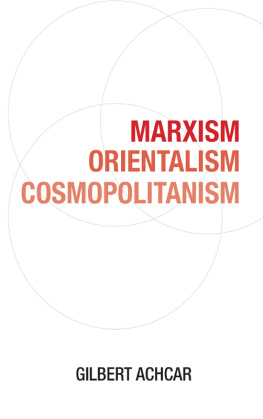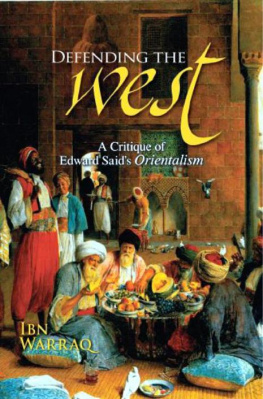PENGUIN BOOKS
FOR LUST OF KNOWING
Robert Irwin is a publisher and writer of both fiction and non-fiction. His works of non-fiction include The Arabian Nights: A Companion (1994), Islamic Art (1997), Night & Horses & the Desert: An Anthology of Classical Literature (1999) and The Alhambra (2004). He is a Fellow of the Royal Society of Literature, the London Institute of Pataphysics, the Royal Asiatic Society and the Society of Antiquaries, and is a Senior Research Associate of the School of Oriental and African Studies.
ROBERT IRWIN
For Lust of Knowing
The Orientalists and their Enemies

PENGUIN BOOKS
PENGUIN BOOKS
Published by the Penguin Group
Penguin Books Ltd, 80 Strand, London WC2R 0RL, England
Penguin Group (USA) Inc., 375 Hudson Street, New York, New York 10014, USA
Penguin Group (Canada), 90 Eglinton Avenue East, Suite 700, Toronto, Ontario, Canada M4P 2Y3
(a division of Pearson Penguin Canada Inc.)
Penguin Ireland, 25 St Stephens Green, Dublin 2, Ireland
(a division of Penguin Books Ltd)
Penguin Group (Australia), 250 Camberwell Road, Camberwell, Victoria 3124, Australia
(a division of Pearson Australia Group Pty Ltd)
Penguin Books India Pvt Ltd, 11 Community Centre, Panchsheel Park, New Delhi 110017, India
Penguin Group (NZ), 67 Apollo Drive, Mairangi Bay, Auckland 1310, New Zealand
(a division of Pearson New Zealand Ltd)
Penguin Books (South Africa) (Pty) Ltd, 24 Sturdee Avenue, Rosebank, Johannesburg 2196, South Africa
Penguin Books Ltd, Registered Offices: 80 Strand, London WC2R 0RL, England
www.penguin.com
First published by Allen Lane 2006
Published in Penguin Books 2007
1
Copyright Robert Irwin, 2006
All rights reserved
The moral right of the author has been asserted
Except in the United States of America, this book is sold subject
to the condition that it shall not, by way of trade or otherwise, be lent,
re-sold, hired out, or otherwise circulated without the publishers
prior consent in any form of binding or cover other than that in
which it is published and without a similar condition including this
condition being imposed on the subsequent purchaser
EISBN: 9780141901800
Contents
Introduction
Are you an Orientalist? asked the underling.
I winced inwardly. It was a word with undertones, dark ones; an Orientalist went around in native dress, carried a pocket theodolite and worked for the ultimate and total dominance of the West.
Tim Mackintosh-Smith, Travels with a Tangerine:
A Journey in the Footsteps of Ibn Battutah (2002)
A man lives not only his own personal life as an individual, but also, consciously or unconsciously, the life of his epoch and his contemporaries.
Thomas Mann, The Magic Mountain (1924)
I sometimes think of myself as a living fossil, for I was taught in a school where daily chapel services and the study of Latin were compulsory for everyone (though Greek was only for the clever boys). The teaching of Latin relied heavily on the rote learning of declensions and the elements of parsing and scansion. Our textbooks dated back to the beginning of the twentieth century or even earlier. The classics masters lingered lovingly on such weighty matters as whether the Roman V should be pronounced as a W or not. I used to play the alphabet game during the sermons and there were lengthy sermons at least once a week. Classical and biblical figures were presented to us as models for behaviour King David, Simon Maccabeus, Gaius Mucius Scaevola, or Scipio Africanus. The system of education I endured was certainly much closer to that practised in the seventeenth and eighteenth centuries than to the system which prevails in the twenty-first century. Today, education no longer places such a heavy stress on the achievements of individual heroes and, in most schools, Christian indoctrination has been replaced by something vaguer, kinder and more multicultural. Rote learning of anything has fallen out of favour. Even so, I now find that my early immersion in both the Bible and in Latin texts proves to be useful in understanding the origins and formation of Orientalism, for, as we shall see, Orientalism developed in the shade of the much grander discourses of the Bible and of the classics.
I have done my best to make this book interesting, so that it can be read for pleasure, as well as for information. However, this has created problems for me, in that a leading theme of my book is that its subject is neither very important nor very glamorous still less actually sinister. The older way of acquiring learning was a bit boring. Serious scholarship often is. Most of what Orientalists do will seem quite dull to non-Orientalists. There is nothing so very exciting about pedants busily engaged in making philological comparisons between Arabic and Hebrew, or cataloguing the coins of Fatimid Egypt, or establishing the basic chronology of Harun al-Rashids military campaigns against Byzantium. Scholarship used to place little emphasis on accessibility or on contemporary socio-political relevance. The key early Orientalist texts were written in learned Latin and therefore could only be read by an educated elite. Also there were then fewer pressures to publish and many translations and academic essays remained in manuscript. Pious bishops, worthy patrons, timid antiquarians, museum curators with time on their hands, bewigged and gowned dons pursued their recondite enquiries in dusty tomes. They managed to find excitement in long-forgotten controversies regarding the decrees of the Council of Chalcedon or the correct manner of pronouncing Attic Greek. In their minds, they walked and talked with dead men. Many of the Orientalists I shall be discussing regarded their scholarly research as a form of prayer, and, Catholic or Protestant, they went to their graves convinced that, once their last breath was drawn, they would face eternal salvation or damnation. It is difficult for most of us now imaginatively to enter this past.
Orientalism was and is a subset of Western scholarship in general; the history of academic Orientalism is therefore a special case study of the role of academics in cultural life. Who taught whom and how does academic transmission work? How does one achieve recognition as a scholar? In any century what resources were necessary and available in order to pursue a proper study of another culture? Was the study of Arabic and Islam really important within the broader framework of Western intellectual life? These are simple questions that have not yet been answered. Then there are murkier issues raised by Orientalisms critics, such as to what extent have academics working in this area been witting or unwitting collaborators with imperialism and Zionism? Are certain dictionaries and encyclopedias indictable as agents of cultural expropriation? Come to that, are all of Orientalisms critics writing in good faith, or does some of the polemic have an agenda which is related to internal academic politics, anti-Semitism or fundamentalist Islam?
This book would not have been written but for Edward Saids earlier book Orientalism, which was first published in 1978. Said added an afterword to a reissue in 1995, but none of the errors of fact and interpretation in the first edition were corrected in the expanded version. What does his book say? In a nutshell, it is this: Orientalism, the hegemonic discourse of imperialism, is a discourse that constrains everything that can be written and thought in the West about the Orient and more particularly about Islam and the Arabs. It has legitimized Western penetration of the Arablands and their appropriation and it underwrites the Zionist project. Though Said is not consistent about the beginnings of Orientalism, on the whole he argued that it originated in the work of French and British scholars in the late eighteenth century. However, the discursive formation was not restricted to scholars, as imperialist administrators, explorers and novelists also participated in, or were victims of, this discourse. The West possesses a monopoly over how the Orient may be represented. Representations of the Orient invariably carry implications about Western superiority, or even, quite often, flat statements of that superiority. Note that it is only possible to talk of representations of the Orient, as the Orient has no objective reality, being merely a construct of Orientalism. Characteristically Orientalism is essentialist, racialist, patronizing and ideologically motivated.

